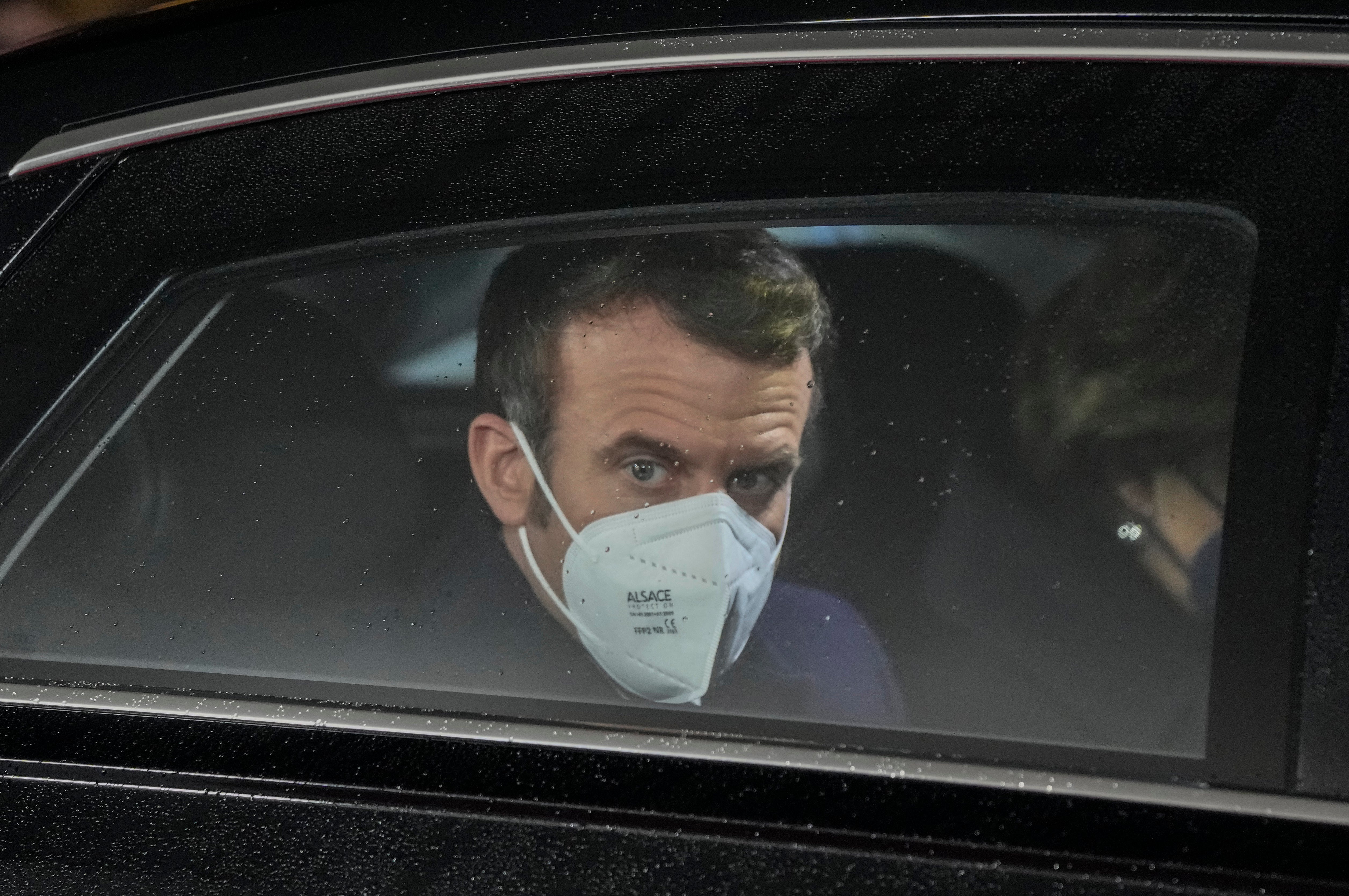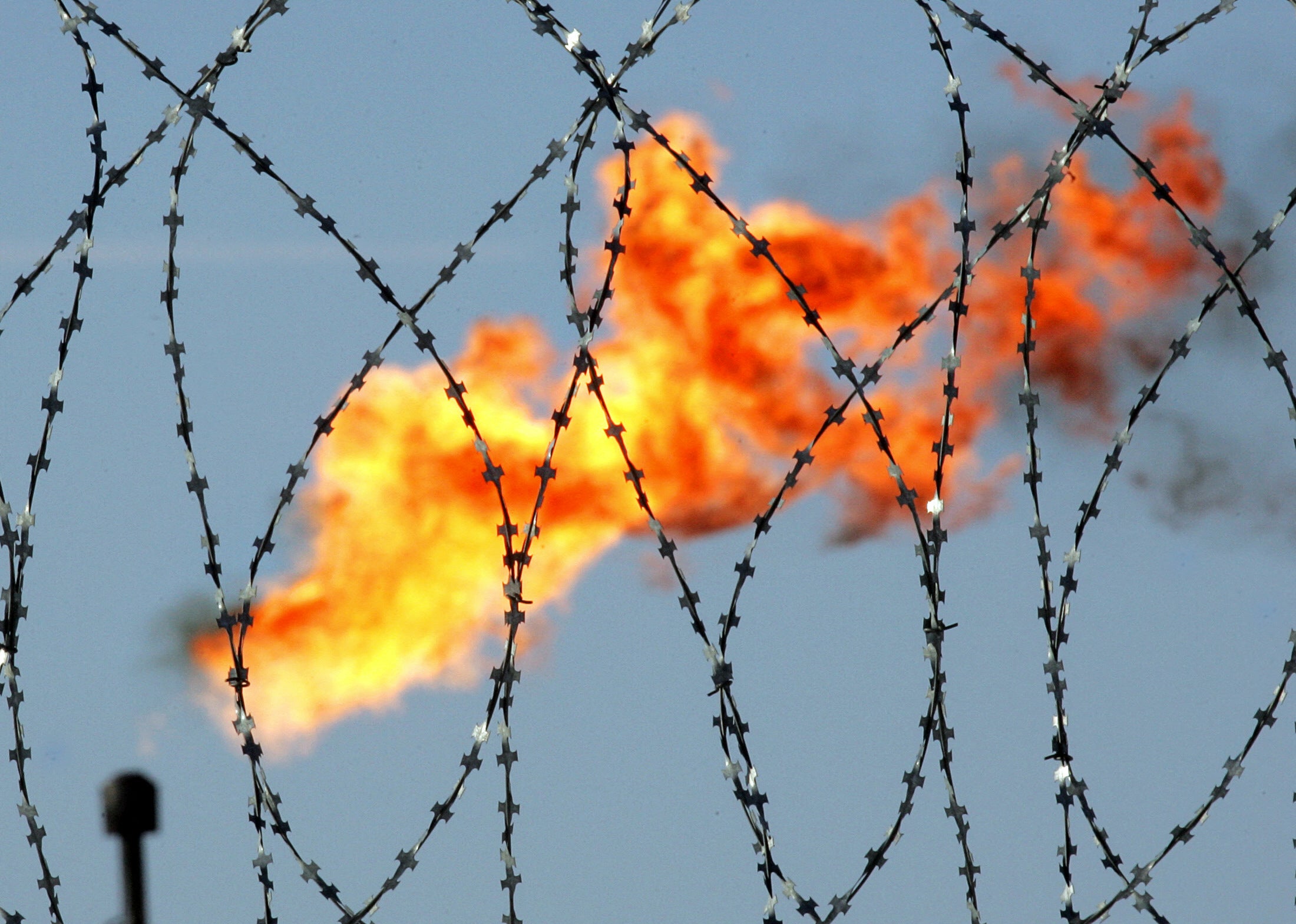Western leaders warn Russia it will pay high price if it invades Ukraine
‘If there is an attack... the price [for Russia] will be very high,’ said Emmanuel Macron

French president Emmanuel Macron told Russia that it would “pay a high price” if any invasion of Ukraine went ahead.
Mr Macron’s warning came as he met new German leader Olaf Scholz in Berlin on Tuesday as eleventh-hour discussions to avert war in Europe continued.
“If there is an attack, there will be retaliation and the price [for Russia] will be very high,” Mr Macron said. He added that recent talks were a “good thing” but were yet to show any clear results.
His comments came on another day of fevered diplomatic discussions with British prime minister Boris Johnson also warning against any military action on Russia’s part, claiming it would prove “tragic and futile”.
He told the House of Commons: “If Russia pursues this path, many Russian mothers’ sons will not be coming home.”
Earlier, UK armed forces minister James Heappey claimed that Russian forces were already in Ukraine as tensions ramp up over the prospect of Moscow attacking its neighbour.
Mr Heappey said that a “significant” number of individuals associated with “Russian military advance-force operations” were already in the country ahead of a possible invasion.
Despite growing fears of conflict, Ukraine’s leader, President Volodymyr Zelensky said there was hope yet of a peaceful resolution to the crisis and that the situation in the east of his country was “under control”.
Russia has denied allegations that it plans to invade although it has amassed troops around the Ukrainian border, surrounding the nation on three sides.
Russia said on Tuesday it was watching with great concern after the United States put 8,500 troops on alert to be ready to deploy to Europe in case of any escalation.
The “bulk of” the thousands of US troops placed on heightened alert are planned to bolster the 40,000 multinational Nato troops already in a number of eastern European countries near the border with Russia, according to Pentagon spokesman John Kirby.
US president Joe Biden and Mr Johnson met via videolink with the leaders of Nato, the EU, Italy, Poland, France and Germany on Monday to discuss the current situation in Ukraine.
Speaking after the meeting, Mr Biden said there was total unity among European leaders.
Kremlin spokesman Dmitry Peskov accused Washington of fuelling tensions over Ukraine - repeating Moscow’s line that the crisis is being driven by US and Nato actions rather than by its own build-up of tens of thousands of troops near the Ukrainian border.
As well as an increase of troops building up, Russia has also been threatened with severe sanctions if military action goes ahead.

Downing Street said diplomatic discussions with Russia remains the first priority, but that the nation would be hit with “swift retributive responses” if a “further Russian incursion into Ukraine” takes place.
Mr Johnson had earlier warned that “gloomy” intelligence suggested Russia was planning a lightning raid on Ukraine’s capital.
Mr Peskov said the Russian president would talk this week to his French counterpart Emmanuel Macron, who is also planning to speak with the Ukrainian leader. Russia is also awaiting a written US response this week to a list of security demands it has presented, some of which Washington has dismissed as non-starters.
Over the weekend, the UK announced it was withdrawing some embassy staff and their family members from Ukraine, after the US ordered relatives of American staff to leave the country. Germany and Australia are making similar moves.
Meanwhile, the US said it prepared natural gas supplies to reach Europe in the event of conflict. Russia is a major global gas supplier and there are fears supplies could be cut amid the growing tensions.



Join our commenting forum
Join thought-provoking conversations, follow other Independent readers and see their replies
Comments